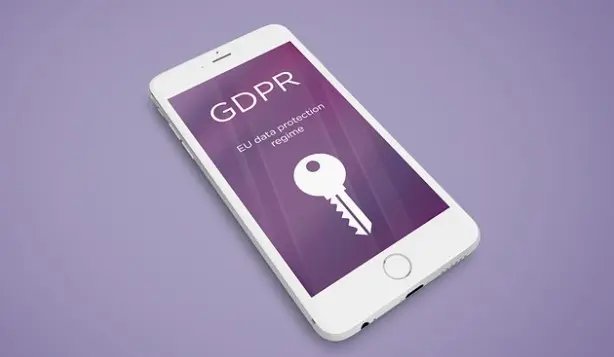Are you familiar with GDPR regulations and how they affect your business? In today’s data-driven economy, it’s critical to understand the rules surrounding data protection and how compliant your business needs to be. This comprehensive guide and checklist will walk you through everything you need to know to meet GDPR requirements.

Understanding GDPR and Its Importance
The General Data Protection Regulation (GDPR) is a comprehensive data protection law that took effect on May 25, 2018. It includes a comprehensive set of rules that regulate how personal data is collected, used, processed, and stored in the EU. Even if your business is not based in the EU, if you process data of EU citizens, you must comply with GDPR regulations.
This regulation was implemented to protect individuals’ personal data, giving them more control over their data and how different companies use it. GDPR is not just important for individuals but for businesses as well. Businesses can build customer trust by complying with GDPR regulations, increasing loyalty and revenue. In addition, GDPR compliance can help businesses avoid costly fines and legal battles.
Why GDPR Matters for Your Business
GDPR matters because non-compliance can lead to heavy fines. Businesses that fail to comply with GDPR regulations could be fined up to €20 million or 4% of the company’s global annual turnover, whichever is greater. Fines are imposed for various GDPR violations, including failure to obtain proper consent from individuals, lack of transparency, and delayed response to data breaches.
In addition to the threat of fines, non-compliance with GDPR can also damage a business’s reputation and erode customer trust. Customers are increasingly aware of their rights regarding their personal data and are more likely to do business with companies that take data protection seriously.
Complying with GDPR regulations can also be a positive step for businesses regarding innovation. By implementing strong data protection measures, businesses can ensure that they are using their customers’ data responsibly and ethically. This can lead to new opportunities for innovation and growth, as customers are more likely to trust transparent and responsible businesses with their data.

Key Principles of GDPR Compliance
The GDPR requires companies to comply with seven key principles:
Lawfulness, Fairness, and Transparency
Processing of personal data must be lawful, fair, and transparent to the person whose data is being processed. This means that you must provide clear information about your data processing activities, including the purpose of collecting data, how it will be used, and who it will be shared with. You must also obtain explicit consent from individuals before processing their data.
Transparency is an essential aspect of GDPR compliance. Simply put, you must be open and honest with individuals about how their data is being processed and provide them with easy-to-understand information about their rights under the GDPR. This can include providing a privacy notice or policy that outlines your data processing activities.
Purpose Limitation
Personal data can only be collected for a specific, explicit, and legitimate purpose. You cannot use the data for another incompatible purpose without obtaining explicit consent from the individual whose data you’re using. This means that you need to be clear about why you are collecting data and how you will use it. If you want to use the data for a different purpose, you must obtain explicit consent from the individual.
It’s important to note that the GDPR requires you to have a lawful basis for processing personal data. This can include obtaining consent from the individual, fulfilling a contract, or complying with a legal obligation.
Data Minimization
The data you collect and process must be adequate, relevant, and limited to what’s necessary for the purpose you’ve collected it for. This means that you must carefully consider what data you need to collect and ensure that you don’t collect more than is necessary. You must also periodically review the data you hold and delete anything that’s no longer needed.
Data minimization is an essential aspect of GDPR compliance. Limiting the amount of data you collect and process reduces the risk of data breaches and ensures that you only process data necessary for your business activities.
Accuracy
The data you hold must be accurate, and you must take all reasonable steps to ensure its accuracy. If the data you’re holding is inaccurate, you must delete or rectify it. This means you need to have processes to ensure that data is regularly reviewed and updated.
It’s important to note that individuals can request that inaccurate data be corrected or deleted. If an individual makes such a request, you must respond promptly and take action to rectify the data.
Storage Limitation
You must not keep personal data for longer than necessary. You must have clear policies in place that define how long you will retain data and when you will delete it. This means that you need to carefully consider how long you need to keep data and ensure that you delete it once it is no longer needed. It’s important to note that the GDPR requires you to have a lawful basis for retaining personal data. This can include fulfilling a legal obligation or legitimate interest.
Integrity and Confidentiality
You must ensure that your personal data is secure and protected from unauthorized access, accidental or unlawful destruction, or accidental loss. This means that you must have appropriate technical and organizational measures to protect data. Integrity and confidentiality are essential aspects of GDPR compliance. By ensuring that data is secure and protected, you reduce the risk of data breaches and protect individuals’ rights.
Accountability
Accountability is an essential aspect of GDPR compliance. By demonstrating that you are taking steps to comply with the regulation, you build trust with individuals and reduce the risk of fines and other penalties.
Steps to Achieve GDPR Compliance
Following are some practical steps you can take to comply with the GDPR.
Appoint a Data Protection Officer (DPO)
The GDPR requires certain companies to appoint a DPO. Even if it’s not mandatory for your business, having someone responsible for data privacy can help you track your progress and ensure that you comply with the GDPR.
Conduct a Data Audit
The first step towards GDPR compliance is understanding what data you have and where it’s stored. Conducting a data audit will help you identify your personal data, where it’s held, and who has access to it. Using a simple letter grading system, PPGS ™ can audit and objectively assess your privacy policy and online security practices.
Create and Update Privacy Policies
You need a clear privacy policy outlining how you collect, use, and store data. Your privacy policy should also provide clear information about individuals’ rights regarding their data. Once you’ve created a privacy policy, review and update it regularly to ensure it’s still accurate and comprehensive.
Implement Data Protection by Design and Default
The GDPR requires businesses to implement data protection by design and default. This means that you must incorporate data protection measures throughout the entire data processing life cycle, from project planning to data deletion. You should establish policies and procedures that ensure data protection is integral to your business.
Establish a Data Breach Response Plan
You must have a clear plan in place to respond to a personal data breach. If a data breach occurs, you must notify the individuals affected and the supervisory authority within 72 hours of becoming aware of the breach. Your response plan should outline the steps you will take in the event of a breach, including who should be notified and when.
Final Thoughts
GDPR compliance can seem daunting, but it’s essential for businesses that process personal data. By understanding the key principles of GDPR compliance and taking practical steps to implement them, you’ll be able to protect the data of individuals and avoid heavy fines. Use this checklist to get started and set up a consultation with PPGS ™ to ensure you meet the GDPR standards.
